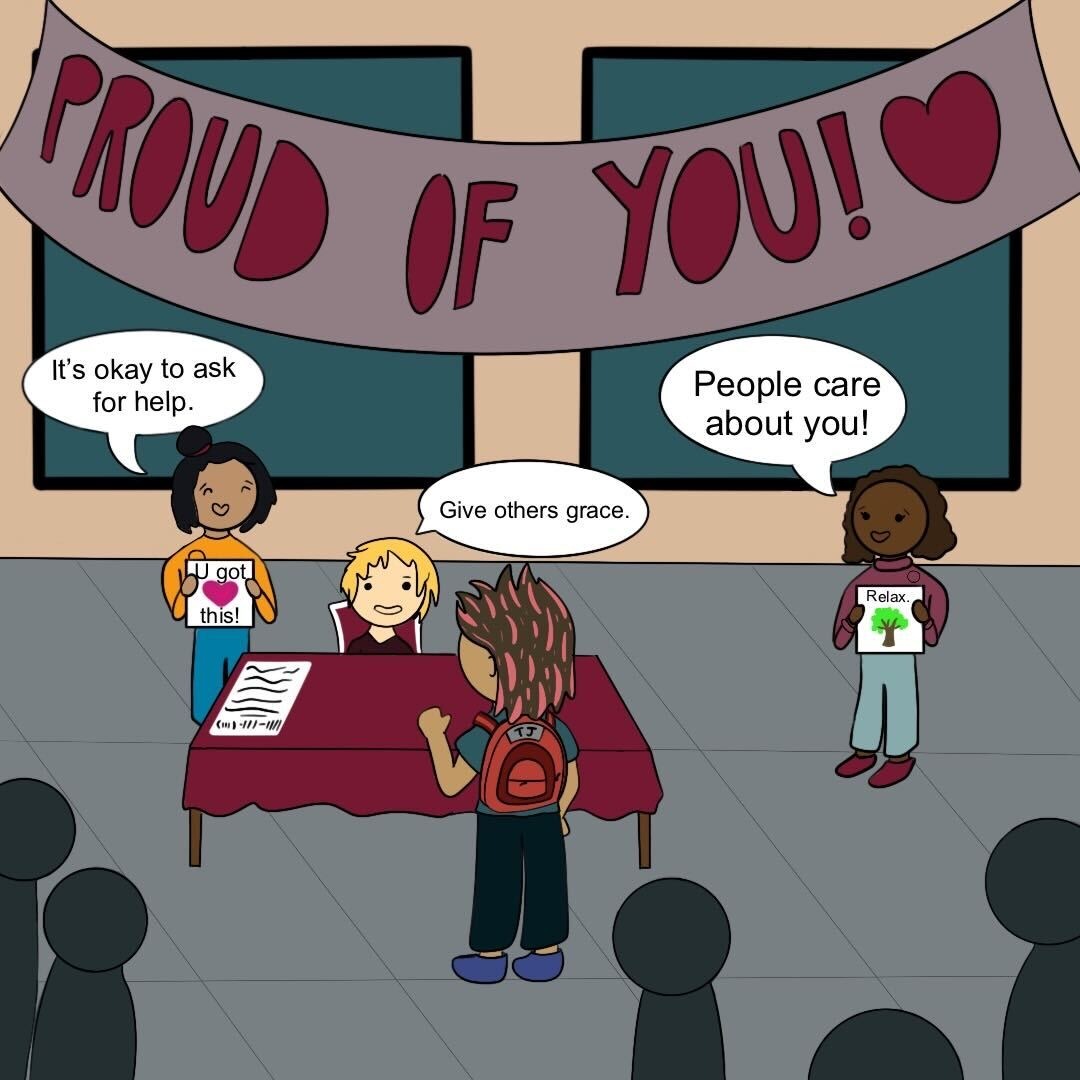The Student Learning Assistance Center (SLAC) has numerous programs to help students, ranging from public or private tutoring and in-class assistance with various student-assistant teacher programs to outside class assistance with Supplemental Instructor (SI) sessions and subject-focused labs.
Personalized Academic and Career Exploration (PACE) has a peer mentorship program that helps freshmen, assigning them an upperclassman for the one-hour credit semester course University Seminar (US 1100) or the Peer Mentorship program. For second-year, transfer and first-generation students, the Retention Management and Planning center houses the Bobcat Bond program, which serves a similar role without the semester course.
All of these programs are helpful to the student body. However, they are geared toward teaching large groups of students instead of prioritizing individual students.
Texas State should implement a peer mentorship program similar to that of other universities, such as Texas A&M. In Texas A&M’s honors program, high-achieving undergraduates can join their Peer Mentor program where they help younger students adapt to college life.
Although similar to US 1100, the A&M program is not a mandatory course. Instead, the A&M program allows for students to work with an upperclassman who can mentor them and help them adjust to a university setting.
In their first year, students have an approximately 30% dropout rate nationwide. Texas State has a high retention rate with 77% of freshmen making it to their sophomore year.
Freshmen are most likely to drop out because freshman year is a significant transition phase for them, one in which they have just moved from the comfort of their homes with their families to dorms with little to no private space and have an overwhelming amount of work from professors.
Freshmen have also been ripped away from their high school friends who they have known for years and find themselves crowded in rooms full of strangers, if not a Zoom call where everyone is muted and has their cameras turned off. Social events and activities are canceled for the foreseeable future, all of which compound the loneliness freshmen are currently experiencing. A peer mentorship program would serve to counteract these issues and increase the retention rate.
By having a more individualized program, students would have a mentor who could focus on them. Having upperclassmen assigned to a small group of students no larger than five would call for a sense of community, which is sorely lacking at the beginning of a student’s college education.
To help incoming freshmen establish a small community of peers, groups should not be randomly assigned; rather, they should be specific to one’s major. This would allow for a group of people with the same major to have an upperclassman in the same program to show them the ropes of the university, classes and what to expect further down the road.
The coordinator for the SI program, Victor M. Capellan, believes that peer mentoring serves a very important purpose in helping students at all levels. The programs and services offered by SLAC provide opportunities to students who would otherwise not have them, which puts those students at a disadvantage before the game even starts.
“I find peer mentoring programs essential to the university experience for many students, first-time college students and continued education students alike,” Capellan says. “Not everyone has family members or friends who can provide guidance or support throughout their college years. So, for many students, having the opportunity to connect with an experienced peer may significantly help them adjust and find meaningful connections at their institution.”
The national average retention rate is 69%, with a 65% retention rate in the state of Texas. Having a peer mentorship program could help increase the retention rate by providing students with a small community of like-minded peers and allow for strong connections and friendships on a professional level, if not a personal one as well.
Having a more individualized approach to mentorship programs could help freshmen feel part of a community and ease them into college life. Students need guidance and mentorship through their entire college experience, not just a semester class or a variety of smaller programs.
Upperclassmen serving as resources to freshmen is the perfect solution. All parties involved gain the skills, knowledge and experience needed for success in the labor force after graduation.
– Christopher Roberts is an accounting sophomore
The University Star welcomes Letters to the Editor from its readers. All submissions are reviewed and considered by the Editor-in-Chief and Opinion Editor for publication. Not all letters are guaranteed for publication.
Correction: An earlier version of this story listed the Bobcat Bond program as part of PACE. It has since been corrected; we deeply apologize for this error.
Opinion: SLAC needs individualized peer mentorship programs
Christopher Roberts, Opinion Contributor
February 9, 2021
0
Donate to The University Star
Your donation will support the student journalists of Texas State University. Your contribution will allow us to purchase equipment and cover our annual website hosting costs.
More to Discover











